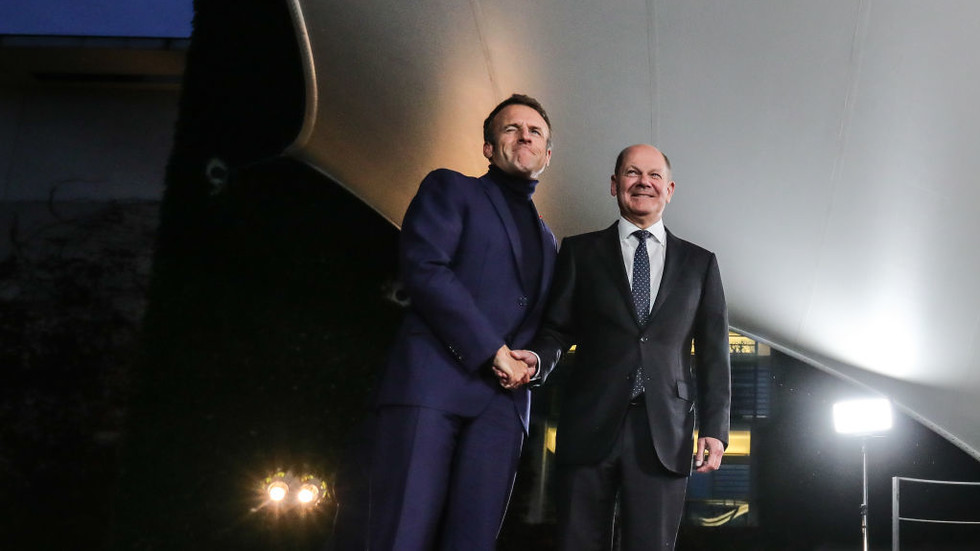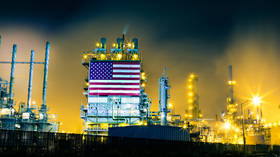
The gas pipeline, which accounts for less than 2% of the largest EU economy’s consumption, is part of an energy solidarity deal

© Getty Images / Omer Messinger / Stringer
France is supplying natural gas to Germany for the first time, under an energy solidarity deal aimed at alleviating a months-long supply crisis in the EU’s biggest economy.
According to a statement released by the French grid operator GRTgaz on Thursday, the gas pipeline connecting the countries at the French border village of Obergailbach has started pumping an initial daily volume of 31 gigawatt-hours.
The amount is expected to eventually increase to a daily maximum of 100 gigawatt-hours, representing less than 2% of Germany’s overall gas consumption, according to data from the French Ministry for Energy Transition.
The only interconnection point between France and Germany at Obergailbach was initially constructed to operate in the Germany- France direction, but the parties have carried out the necessary technical adjustments to send gas the opposite way.
Last month the countries clinched an energy solidarity deal, with France pledging to help Germany with its gas supplies. In return, Germany is expected to help France when needed.

“If we did not have European solidarity and an integrated, united market right now, we would have serious problems,” French President Emmanuel Macron said on Wednesday.
“This is a good and important sign of European solidarity,” German Economy Minister Robert Habeck said, adding that “it shows that in a spirit of solidarity even difficult technical issues can be resolved.”
France is less affected by declining energy imports from Russia than Germany, as most of its gas needs are met by Norway, and through liquified natural gas supplies.
The EU is currently struggling with a severe energy crisis, with gas prices hitting record levels, driving up overall inflation. Prior to the conflict in Ukraine, Russia was the EU’s largest fuel supplier, responsible for about 45% of the bloc’s gas imports. However, due to sanctions imposed on Moscow in recent months, Russian supplies to the EU have plummeted.
For more stories on economy & finance visit RT’s business section




